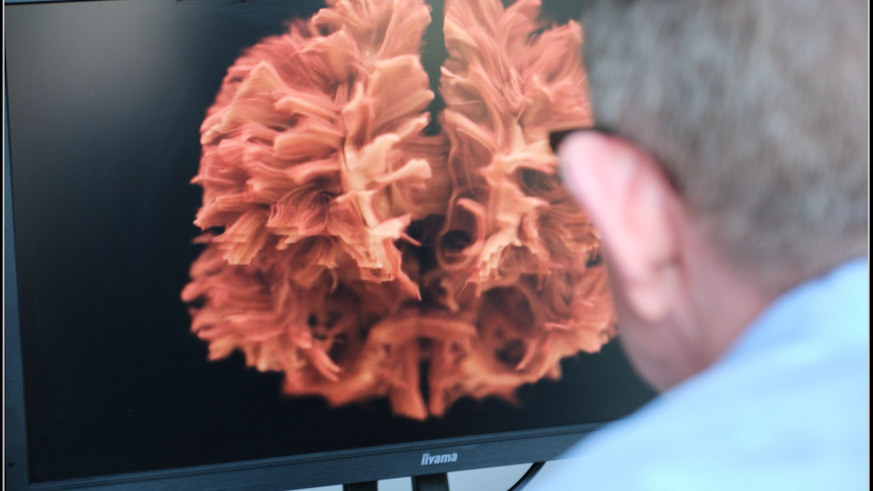Partnership to uncover new insights into dementia
12 March 2024

A new partnership will allow researchers to uncover new information about the structural changes that occur in patients with Parkinson’s and Alzheimer’s disease, by applying cutting-edge imaging and machine learning.
A collaboration between the Cardiff University Brain Research Imaging Centre (CUBRIC) and Roche, one of the world’s largest biotech companies, aims to use advanced MRI to study changes in the brain in Parkinson’s and Alzheimer’s disease – from bigger structural changes in the brain to changes at a microscopic level.
The team of researchers, led by Professor Derek Jones and Dr Marco Palombo at CUBRIC, will apply modern advancements in imaging techniques to broaden scientific understanding of the smaller structural changes in the brain that occur in Parkinson’s and Alzheimer’s disease, which in the future will help to advance earlier detection for the diseases.
Professor Derek Jones, School of Psychology, Director of CUBRIC, said: “While traditional MRI can identify larger structural changes in dementia, recent advances in imaging techniques will allow us to study changes in the brain at a microstructural level in a non-invasive way.
"Our study utilizes the Siemens Connectom scanner and Siemens 7T MRI scanner, along with mathematical modelling and cutting-edge machine learning. This unique combination allows us to investigate small and large changes in the brain of those with Parkinson’s and Alzheimer’s disease.”

Dr Marco Palombo, School of Psychology and School of Computer Science and Informatics, added: “By furthering our understanding, we can help develop processes for earlier diagnosis, monitor treatment response and understand the impacts of potential new drug-based treatments. As an important part of this first project with Roche, we will focus on the translatability of our newly- developed techniques to clinical MRI scanners, maximizing the benefits for every patient. The responsible development of explainable machine learning methods for image processing, analysis and interpretation will be pivotal to achieving wide impact in clinics.”

